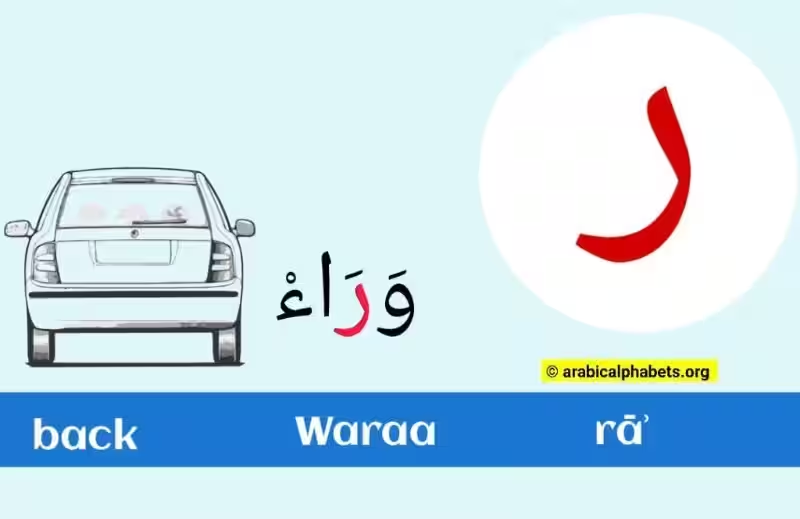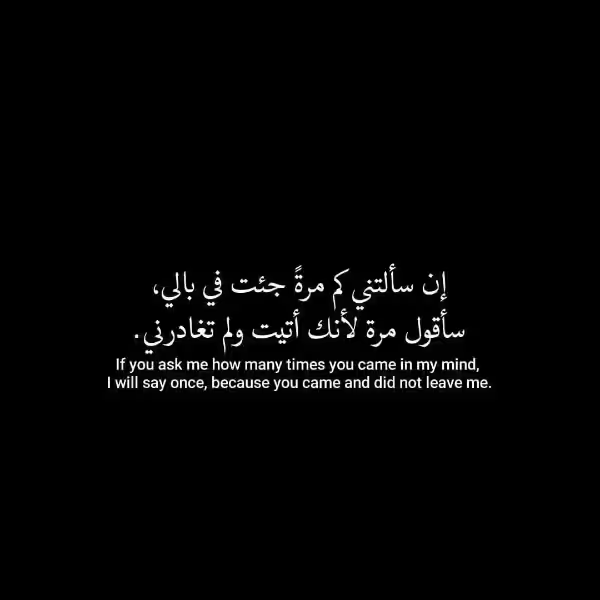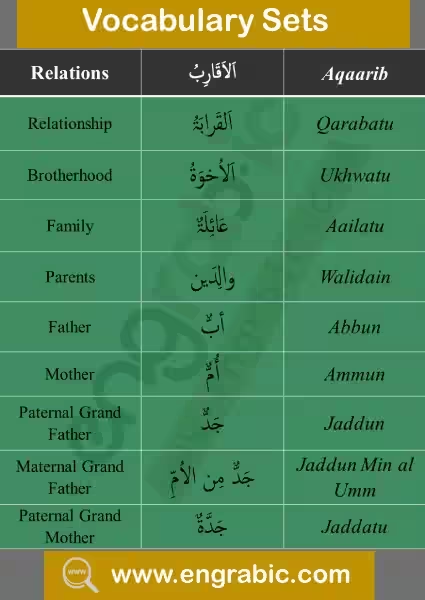
Arabic, a language steeped in history and culture, boasts a rich linguistic tapestry woven with profound meanings and evocative imagery. This exploration delves into a selection of Arabic words, categorized by their nuances and intended use, to illuminate the beauty, power, and cultural significance embedded within them.
Beautiful Arabic Words: A Symphony of Aesthetics
Arabic is renowned for its poetic nature. Words aren’t merely labels; they are portals to emotions and cultural values. The very sounds of Arabic words, when spoken with their careful pronunciation, carry a sense of elegance and grace. The language is not just about communication; it’s about experiencing the world through a distinct aesthetic lens. This artistic sensibility permeates every aspect of Arabic culture, from poetry to calligraphy.
Consider the word jamāl (جمال), meaning “beauty.” It evokes not just physical attractiveness but also an inner radiance, a profound spiritual quality. Similarly, ḥubb (حب), meaning “love,” transcends the simple emotion. It embodies a deep connection, often intertwined with Islamic values of compassion and generosity. Words like salām (سلام), “peace,” speak volumes about the cultural emphasis on harmony and coexistence. These words are more than just translations; they are powerful representations of core Islamic values and cultural ideals.
Words of Profound Meaning: Exploring Existential Concepts
Beyond aesthetics, Arabic possesses a depth of meaning that explores complex human experiences. The language delves into the nuances of the human condition, offering words to articulate existential concepts. The word qadar (قدر), meaning “destiny,” speaks to the acceptance of life’s unpredictable path, a concept deeply ingrained in Islamic thought. Ṣabr (صبر), meaning “patience,” doesn’t merely signify endurance; it embodies resilience in the face of adversity, a virtue highly valued in many Arab cultures. Shukr (شكر), meaning “gratitude,” emphasizes appreciation for the blessings in life, fostering a mindset of thankfulness.
These words are not merely theoretical; they are deeply embedded in daily life and rituals. Understanding these concepts through the lens of Arabic allows for a deeper appreciation for the nuances of the human experience and the values that shape it. The very act of contemplating these words connects us to a rich philosophical tradition.
Nice Arabic Words: Expressing Kindness and Warmth
Arabic excels in expressing kindness and warmth, evident in everyday interactions. Laṭīf (لطيف), meaning “kind,” encapsulates a gentle nature, a considerate approach to others. Karīm (كريم), meaning “generous,” signifies a willingness to share and support others, a cornerstone of many Arab cultures. Muḍyāf (مضيف), meaning “hospitable,” speaks volumes about the warmth and openness of Arab communities, their deep respect for guests, and the importance of welcoming others into their homes and lives.
These words exemplify the cultural emphasis on social graces and values. They demonstrate the way in which language reflects and shapes social interactions, fostering a sense of community and belonging. By understanding these terms, we gain insight into the fabric of Arab social interactions, and the importance of interpersonal connection.
Powerful Arabic Words: Strength and Determination
Arabic is equally adept at expressing strength, determination, and resilience. ʿAzīma (عزيمة), meaning “determination,” epitomizes the unwavering resolve to overcome challenges. Naṣr (نصر), meaning “victory,” carries the weight of historical achievements and the ongoing struggle for justice. Quwwa (قوة), meaning “strength,” isn’t limited to physical prowess; it encompasses inner fortitude and the strength to face life’s trials.
These words resonate with narratives of historical events and cultural struggles. Understanding these terms allows us to appreciate the cultural narratives woven into the language, and the importance of courage in the face of adversity. The language itself embodies a powerful narrative of resistance and perseverance.
Beautiful Words from the Quran: Spiritual Significance
The Quran, a cornerstone of Islamic faith, employs beautiful Arabic words to convey profound spiritual concepts. Raḥmān (الرحمن), meaning “The Most Gracious,” and Raḥīm (الرحيم), meaning “The Most Merciful,” encapsulate the core tenets of divine compassion. These words, with their inherent beauty and resonance, go beyond mere translations; they invite reflection on the profound nature of the divine.
These words are not just descriptive but evoke profound introspection. Their inclusion in this study underscores the importance of language in conveying profound spiritual concepts and the power of Arabic to express the divine. They are portals to a deeper understanding of faith and spirituality.
Unique Arabic Words with Nuances: Capturing Complex Concepts
Arabic possesses a unique ability to articulate complex cultural concepts that are difficult to translate directly into English. Tarraffuʿ (ترفّع), meaning “elevated demeanor,” captures a sense of grace, sophistication, and refined conduct. Murūʾa (مروءة), meaning “chivalry,” embodies a code of conduct encompassing honor, courage, and respect.
These concepts are deeply rooted in Arab culture. Understanding such words unveils the cultural specificity inherent in Arabic, and how language reflects and shapes identity. These terms are more than just translations; they are windows into a specific way of life.
Cute Arabic Words: Expressing Affection
The language also offers endearing terms to express affection. Ḥabībi (حبيبي), meaning “my beloved,” is a tender expression of love and affection. Nūr ʿayni (نور عيني), meaning “light of my eye,” conveys a profound sense of cherished affection, often used to express the love between family members or close friends.
These words underscore the heartwarming side of Arabic, highlighting the emotional depth that the language can convey. They are more than just words; they are expressions of intimate connection.
Conclusion:
This exploration into the rich tapestry of Arabic words showcases the language’s profound beauty, power, and cultural significance. Learning these words isn’t just about acquiring vocabulary; it’s about connecting with a rich historical and cultural heritage. By understanding these words and the contexts in which they are used, we gain a deeper appreciation for the complexity and nuance of Arab culture. Learning Arabic opens doors to a world of rich cultural understanding and meaningful communication.
Further Learning:
Consider exploring online Arabic courses, such as those offered by the Kalimah Center [insert link to Kalimah Center website]. Their comprehensive language programs can help you achieve fluency in Arabic, expanding your vocabulary and understanding of this beautiful language. Try a free trial today.
Arabic Words and Their Meanings: An FAQ
This FAQ section provides answers to common questions about Arabic words, their meanings, and cultural significance. It draws on the rich linguistic tapestry of Arabic, highlighting the beauty, power, and cultural context of the language.
What is the significance of Arabic words?
Arabic words often hold deep cultural and historical meaning, going beyond simple translations. They frequently encapsulate core Islamic values, cultural ideals, and explore complex human experiences. The language’s root-based system allows for rich linguistic connections and the creation of new words rooted in shared cultural concepts.
Can you give examples of beautiful Arabic words?
Yes, many Arabic words evoke beauty and profound meaning. Examples include jamāl (beauty), ḥubb (love), and salām (peace). These words are not just aesthetic; they encapsulate core Islamic values and cultural ideals.
What are some Arabic words with profound meanings?
Words like qadar (destiny), ṣabr (patience), and shukr (gratitude) carry profound meanings often related to existential concepts. These words are deeply rooted in cultural and religious contexts, reflecting a deep understanding of the human condition.
What are some “nice” Arabic words?
Arabic has many words to express kindness and warmth. Laṭīf (kind), karīm (generous), and muḍyāf (hospitable) illustrate the language’s ability to convey social graces and cultural values.
What are some powerful Arabic words?
Words such as ʿazīma (determination), naṣr (victory), and quwwa (strength) convey strength, determination, and resilience, often connected to human qualities and historical events.
What are some beautiful words from the Quran?
The Quran utilizes beautiful Arabic words with significant spiritual and moral weight. Raḥmān (The Most Gracious) and Raḥīm (The Most Merciful) are prime examples that reveal the Quran’s use of Arabic to convey spiritual concepts.
How does Arabic express nuanced meanings?
Arabic possesses unique words with nuanced meanings that are difficult to translate directly into English. Tarraffuʿ (elevated demeanor) and murūʾa (chivalry) exemplify the language’s ability to capture complex cultural concepts.
Are there cute Arabic words?
Yes, Arabic has endearing words for expressing affection, such as ḥabībi (my beloved) and nūr ʿayni (light of my eye).
How does Arabic influence other languages?
Arabic’s spread, notably during the Arab conquests, has profoundly influenced other languages. Numerous words have been borrowed or adapted, demonstrating the language’s historical impact.
What is the significance of Arabic’s root-based system?
The root-based system in Arabic allows for rich linguistic connections and the creation of new words rooted in shared cultural concepts. This creates a strong link between words and underlying cultural meanings.
How can I learn more about Arabic words?
Exploring Arabic words can deepen your understanding of the culture and history behind them. Furthermore, expanding your vocabulary through resources like online Arabic courses can enhance your ability to understand and appreciate the beauty and depth of the language.








